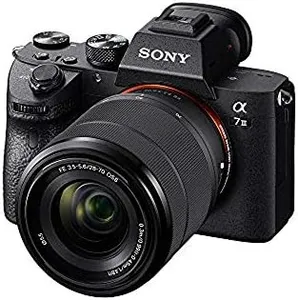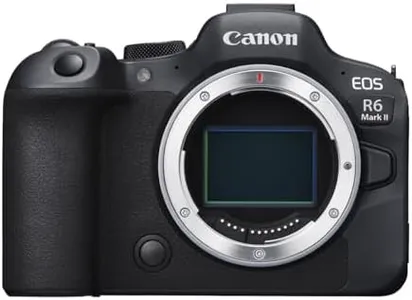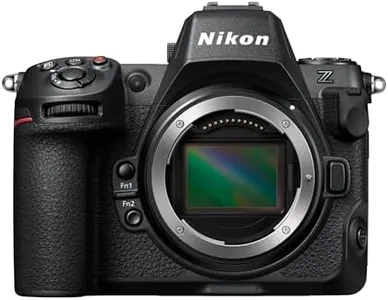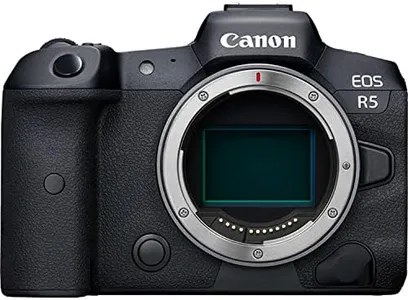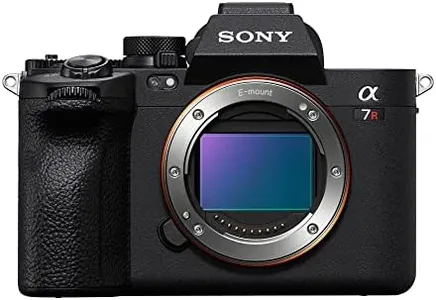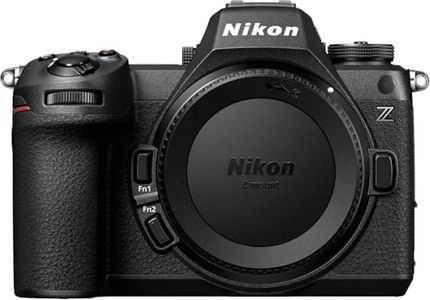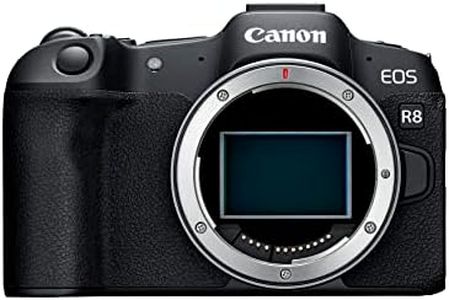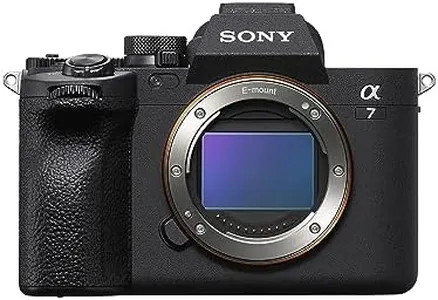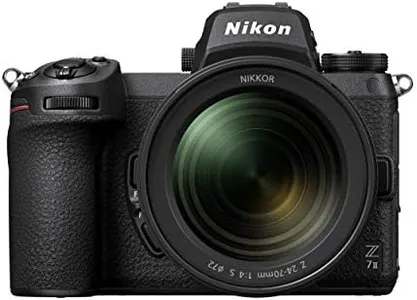10 Best Full Frame Mirrorless Cameras 2026 in the United States
Our technology thoroughly searches through the online shopping world, reviewing hundreds of sites. We then process and analyze this information, updating in real-time to bring you the latest top-rated products. This way, you always get the best and most current options available.

Our Top Picks
Winner
Sony a7 III (ILCEM3K/B) Full-frame Mirrorless Interchangeable-Lens Camera with 28-70mm Lens with 3-Inch LCD, Black
Most important from
2314 reviews
The Sony a7 III is a full-frame mirrorless camera equipped with a 24.2MP back-illuminated sensor, which can capture high-quality images with excellent detail and a wide dynamic range. Its autofocus system is highly advanced, featuring 693 phase-detection and 425 contrast AF points, covering 93% of the image area, which ensures quick and accurate focusing for both stills and video. The camera supports up to 10 frames per second continuous shooting, which is great for capturing fast-moving subjects. It also includes 5-axis in-body image stabilization, which helps reduce blurriness in photos and videos caused by camera shake.
For video enthusiasts, the a7 III offers 4K recording capabilities utilizing the full width of the sensor, providing high-quality footage. The electronic viewfinder (EVF) and a responsive 3-inch tilting LCD make composing shots and reviewing images straightforward and enjoyable. Battery life is robust, thanks to the NP-FZ100 battery, allowing for extended shooting sessions. The build quality is solid, with a weather-sealed body that can withstand various shooting conditions.
The camera comes with a versatile 28-70mm lens, suitable for a wide range of photography needs. However, it should be noted that the maximum aperture of the included lens is only f/3.5, which might limit performance in low-light conditions compared to faster lenses. Additionally, the menu system can be complex for beginners, and the absence of a built-in flash might require additional accessories for certain situations. The Sony a7 III is ideal for photographers and videographers seeking a reliable and versatile full-frame mirrorless camera with strong performance and a wide range of features.
Most important from
2314 reviews
Canon EOS R6 Mark II Mirrorless Camera (Body Only), Full-Frame Camera, 24.2 Megapixel CMOS Sensor, Photo and Video Capabilities, Black
Most important from
556 reviews
The Canon EOS R6 Mark II is a strong contender in the full-frame mirrorless camera market, boasting a 24.2 megapixel CMOS sensor that excels in low-light conditions. This camera is particularly advantageous for photographers who require superior image quality and performance, thanks to the DIGIC X image processor which enhances both image stabilization and video capabilities. The autofocus system is a standout feature, offering advanced subject detection including head, face, and eye tracking for both people and animals, making it excellent for portraiture and wildlife photography. Furthermore, with high-speed continuous shooting at up to 40 fps, it captures fast-moving subjects with ease.
Video capabilities are also impressive; it supports 6K oversampled uncropped 4K recording up to 60 fps, allowing videographers to create high-quality footage without the risk of overheating. The multi-angle touchscreen and high-resolution electronic viewfinder provide flexibility and clarity during shooting, enhancing the user experience.
However, there are a few drawbacks to consider. The camera is designed with professionals in mind, which may make it a bit overwhelming for beginners due to its advanced features and settings. Battery life, while decent, can vary depending on usage, especially with heavy video recording. Additionally, the body is relatively lightweight, which is good for portability, but it may feel less robust compared to some bulkier models. Finally, while it offers great lens compatibility with the Canon RF mount, this may limit options if you’re looking to use lenses from other brands or older Canon models without an adapter.
Most important from
556 reviews
Nikon Z 8 | Professional full-frame mirrorless stills/video hybrid camera | Nikon USA Model
Most important from
222 reviews
The Nikon Z 8 is a professional-grade full-frame mirrorless camera that excels in both still photography and video recording, making it a strong contender for enthusiasts and professionals alike. With its impressive 45.7MP stacked CMOS sensor and the powerful EXPEED 7 processing engine, the Z 8 delivers stunning image quality and rapid performance. Its autofocus system stands out, utilizing advanced algorithms and deep learning technology to track a wide range of subjects, from animals to vehicles, even in challenging lighting conditions as low as -9 EV.
The camera boasts impressive video capabilities, offering internal recording in 8K at 60p and 4K at 120p, appealing to videographers seeking high-quality footage. It also includes various file format options, including 12-bit N-RAW and ProRes RAW, giving users flexibility in post-production. On the usability front, the Z 8 has a high-resolution electronic viewfinder and a tilting touchscreen, enhancing composition and navigation. The continuous shooting speeds of up to 120 fps are impressive, allowing fast-paced action photography.
There are some drawbacks. The build quality, while sturdy, lacks water resistance, which may concern those working in tough environments. The relatively heavier body at 1.81 pounds might also be less appealing for users seeking a lightweight travel camera. The battery life could be better, particularly during extensive video shooting, and the lens compatibility is somewhat limited compared to other brands in the same category.
The Nikon Z 8 is an excellent choice for photographers and videographers looking for high performance and versatility, but potential users should consider its weight and the need for additional lenses to fully utilize its capabilities.
Most important from
222 reviews
Buying Guide for the Best Full Frame Mirrorless Cameras
Choosing the right full-frame mirrorless camera can be a daunting task, but with the right approach, you can find the perfect fit for your needs. Full-frame mirrorless cameras are known for their high image quality, compact size, and versatility. To make an informed decision, you should consider several key specifications that will impact your photography experience. Understanding these specs will help you match the camera to your specific needs, whether you're a professional photographer, an enthusiast, or a beginner looking to step up your game.FAQ
Most Popular Categories Right Now
